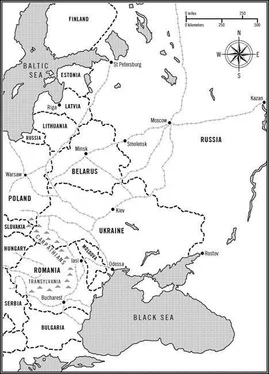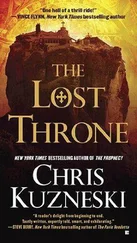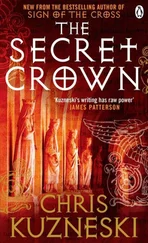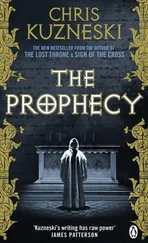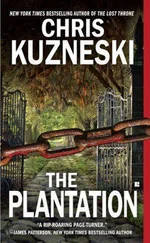Chris Kuzneski - The Hunters
Здесь есть возможность читать онлайн «Chris Kuzneski - The Hunters» весь текст электронной книги совершенно бесплатно (целиком полную версию без сокращений). В некоторых случаях можно слушать аудио, скачать через торрент в формате fb2 и присутствует краткое содержание. Жанр: Криминальный детектив, на английском языке. Описание произведения, (предисловие) а так же отзывы посетителей доступны на портале библиотеки ЛибКат.
- Название:The Hunters
- Автор:
- Жанр:
- Год:неизвестен
- ISBN:нет данных
- Рейтинг книги:5 / 5. Голосов: 1
-
Избранное:Добавить в избранное
- Отзывы:
-
Ваша оценка:
- 100
- 1
- 2
- 3
- 4
- 5
The Hunters: краткое содержание, описание и аннотация
Предлагаем к чтению аннотацию, описание, краткое содержание или предисловие (зависит от того, что написал сам автор книги «The Hunters»). Если вы не нашли необходимую информацию о книге — напишите в комментариях, мы постараемся отыскать её.
The Hunters — читать онлайн бесплатно полную книгу (весь текст) целиком
Ниже представлен текст книги, разбитый по страницам. Система сохранения места последней прочитанной страницы, позволяет с удобством читать онлайн бесплатно книгу «The Hunters», без необходимости каждый раз заново искать на чём Вы остановились. Поставьте закладку, и сможете в любой момент перейти на страницу, на которой закончили чтение.
Интервал:
Закладка:
By the end of the 1980s, head of state Mikhail Gorbachev launched radical reforms that led to national instability. Naturally Kryuchkov wanted to hold the country together. He gathered all his newest, strongest agents, Dvorkin included, for a coup in 1991. But Gorbachev turned Kryuchkov’s solid ground to sand — and he did it brilliantly. Instead of cracking down on Kryuchkov and his followers, he left them alone. Because Kryuchkov did not have a reason to complain to the Communist Party, the Party would not give him the authority to retaliate, and that led to the smoldering destruction of the KGB.
In 1991, the Union of Soviet Socialist Republics formally dissolved. The KGB was quickly divided into several weaker organizations, all under the direct control of the new Russia — and make no mistake about it: the new Russia was not the Communist Party.
Pavel Dvorkin, like so many others, was set adrift.
For a time, he took jobs that suited his temperament and training. A shakedown here, a robbery there — until one day in 2002 when he was asked to obtain incriminating evidence against a high-ranking member of the Politburo. Dvorkin did more than find it; he supplied it in the form of a male prostitute. The scandal that followed was when and how he came to the attention of an exciting new group: the Black Robes. Now, more than a decade later, he was deeply ensconced in their midst and well trusted by his colleagues.
Some of his fellow congregants were perplexed by their presence in Kazan. Why not work out of Tiumen Oblast, Siberia — once known as Pokrovskoe — where their master had been born? Or what about St Petersburg, where their master had healed Prince Alexi of hemophilia and brought royal-lady-in-waiting Anya Vyrubova out of a coma after a train wreck?
Instead, their leader had chosen Kazan as their headquarters, a place where their master had lived in 1902 and had begun gathering his first disciples. Known as the ‘third capital of Russia’, Kazan was a splendid, sprawling city at the juncture of the Kazanka and Volga Rivers. Thanks to the diverse, ever-growing population, the town was full of mosques, cathedrals, churches, and temples. Here, amongst pilgrims of many religions, the Black Robes could hide in plain sight.
Dvorkin walked over the bridge spanning the Bolaq channel — just one of many waterways that reflected, literally and figuratively, the sparkling architecture consisting of white stone buildings with red clay roofs, interspersed with soaring communication towers, stadiums, academies, palaces, and even circuses, complete with elevated ‘big tops’. In the distance, he could see the Millennium Bridge, named for the city’s thousandth anniversary and marked by a giant yellow ‘M’ pylon. In another direction was the Kazan Kremlin, an historic citadel built at the behest of Ivan the Terrible on the ruins of a fallen castle.
Dvorkin took a final look at the city he knew so well, then directed his attention to their headquarters. It was a relatively small, innocuous building — just three stories tall — that blended into its surroundings. Although it was dwarfed by many of Kazan’s edifices, it remained the biggest building on this block. Its architecture was similar to the others, except it had a slightly sloping brown roof, while the others had slightly pointed reddish ones.
With eight tall, narrow windows on each side of every floor, plus corner windows allowing for views in all directions, it seemed sedate, civilized, and unassuming. But as Dvorkin approached the nondescript entrance, he knew at least three cameras and a half-dozen people, both inside and outside the structure, were watching him. He pressed the thumb piece of the door’s handle set and waited. No key, code, or identity card was needed. His entry was allowed from the guards within. There was a buzz and click, and then he went inside the plain antechamber. It was a solid steel box, covered with dark wood paneling.
Dvorkin waited in the eight-foot cube until the door closed behind him, sealing out all light. He stood in total darkness and waited until the infrared sensors had scanned his entire body. Then there was another buzz and another click, and a sliding panel opened in front of him. He stepped through and entered another world.
It was as if he had been transported to 1916 and was standing in the macabre quiet of the Crimson Drawing Room of the Alexander Palace — the preferred home of Nicholas II and his family. A gilded chandelier hung from the ceiling. Marble columns braced heavily draped walls. The chairs were richly upholstered in crimson cloth. The carpet was deep and crimson. The walls were covered with the same sort of emerald wallpaper that had adorned the royal home.
At first glance, there were only two major differences between the original room in St Petersburg and this facsimile in Kazan. One, there were no windows looking out on the royal grounds, and two, the building was filled with gorgeous women dressed in white.
Like angels in a twisted dream.
Following their leader’s directive, the women adhered to the precepts of the Khlysty sect. It preached salvation through sin, with spirits and sensuality being the devices to divine grace. As such, heavy crystal decanters of brandy were on virtually every other table, and languid women rested here and there, all in attire that sexualized royal refinement. The two women in the crimson room wore tight, white lace shirts over white, whale-boned corsets; long, clinging silk gowns with slits up the leg; white lace, thigh-high stockings; and white, high-heeled, button-up ankle boots. The women were both tall and slim, with long, glossy, light brown hair.
That was another benefit of headquartering in Kazan. The streets were full of hopeful actresses, models, athletes, and students — many of whom were so frustrated at their lack of success that they were willing to receive a relatively substantial salary to serve the greater good.
Neither woman looked at him. In fact, their eyes were hooded with heavy lids over unfocused pupils. Dvorkin knew they were most likely sedated, hungover, or both. He hadn’t spoken to the staff members who were responsible for these women, but he did not have to. Their behavior reflected alcohol, leisure medications, and the ‘additives’ thereof.
Dvorkin had once heard their leader say, ‘If our supplicants require external encouragement to reach internal enlightenment, then they shall have it.’
Whether they knew about it or not.
Dvorkin glanced to his left when a short man in a black tunic walked through the far door. He had a severe expression on his face and slicked-back hair. The man said, ‘We’ve been expecting you. He will see you now.’
‘Which room?’ Dvorkin asked.
‘The sitting room.’
Dvorkin breathed a sigh of relief. The sitting room was the re-creation of Alexandra’s formal reception area, up on the third floor. That was where their leader customarily had his minor meetings, so that gave credence to Dvorkin’s hope that their leader only wanted to assure himself that all was proceeding on schedule.
Dvorkin left the other man in the Crimson Study and went up the wide stairs to the third floor. The second floor, as he well knew, was filled with offices and planning rooms where the organization members carried out their leader’s bidding.
He went left at the landing to walk a wide, well-decorated hall. He passed the re-creation of Alexandra’s Maple Room, her Mauve Room, and the Pallisander Room, before approaching the door of the Formal Reception Room. He stood outside and prepared to knock, when he noticed something out of the corner of his eye.
He turned to see a pair of the white, high-heeled ankle boots lying, unbuttoned, outside the cracked-open door of Alexandra’s Imperial Bedroom re-creation. He tried to peer into the bedroom but only glimpsed dark hints of the overstuffed interior. He thought he might have heard muffled human sounds, but he wasn’t sure. It appeared as if whoever had stood in those shoes had been pulled right out of them.
Читать дальшеИнтервал:
Закладка:
Похожие книги на «The Hunters»
Представляем Вашему вниманию похожие книги на «The Hunters» списком для выбора. Мы отобрали схожую по названию и смыслу литературу в надежде предоставить читателям больше вариантов отыскать новые, интересные, ещё непрочитанные произведения.
Обсуждение, отзывы о книге «The Hunters» и просто собственные мнения читателей. Оставьте ваши комментарии, напишите, что Вы думаете о произведении, его смысле или главных героях. Укажите что конкретно понравилось, а что нет, и почему Вы так считаете.
